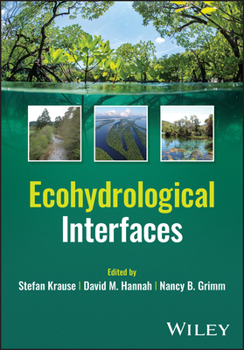Ecohydrological Interfaces
Comprehensive overview of the process dynamics and interactions governing ecohydrological interfaces
Summarizing the interdisciplinary investigation of ecohydrological interface functioning, Ecohydrological Interfaces advances the understanding of their dynamics across traditional subject boundaries. It offers a detailed explanation of the underlying mechanisms and process interactions governing ecohydrological interface functioning from the micro scale to the ecosystem and regional scale.
The multidisciplinary team of authors integrates and synthesises the current understanding of process dynamics at different ecohydrological interfaces to develop a unifying concept of their ecosystem functions. The work introduces novel experimental and model-based methods for characterizing and quantifying ecohydrological interface processes, taking account of innovative sensing and tracing technologies as well as microbial and molecular biology approaches.
Key questions addressed in the book include: Which conditions stimulate the transformative nature of ecohydrological interfaces? How are ecohydrological interfaces organized in space and time? How does interface activity propagate from small to large scales? How do ecohydrological interfaces react to environmental change and what is their role in processes of significant societal value?
As a research level text on the functionality and performance of ecohydrological interfaces, Ecohydrological Interfaces is primarily aimed at academics and postgraduate researchers. It is also appropriate for university libraries as further reading on a range of geographical, environmental, biological, and engineering topics.





